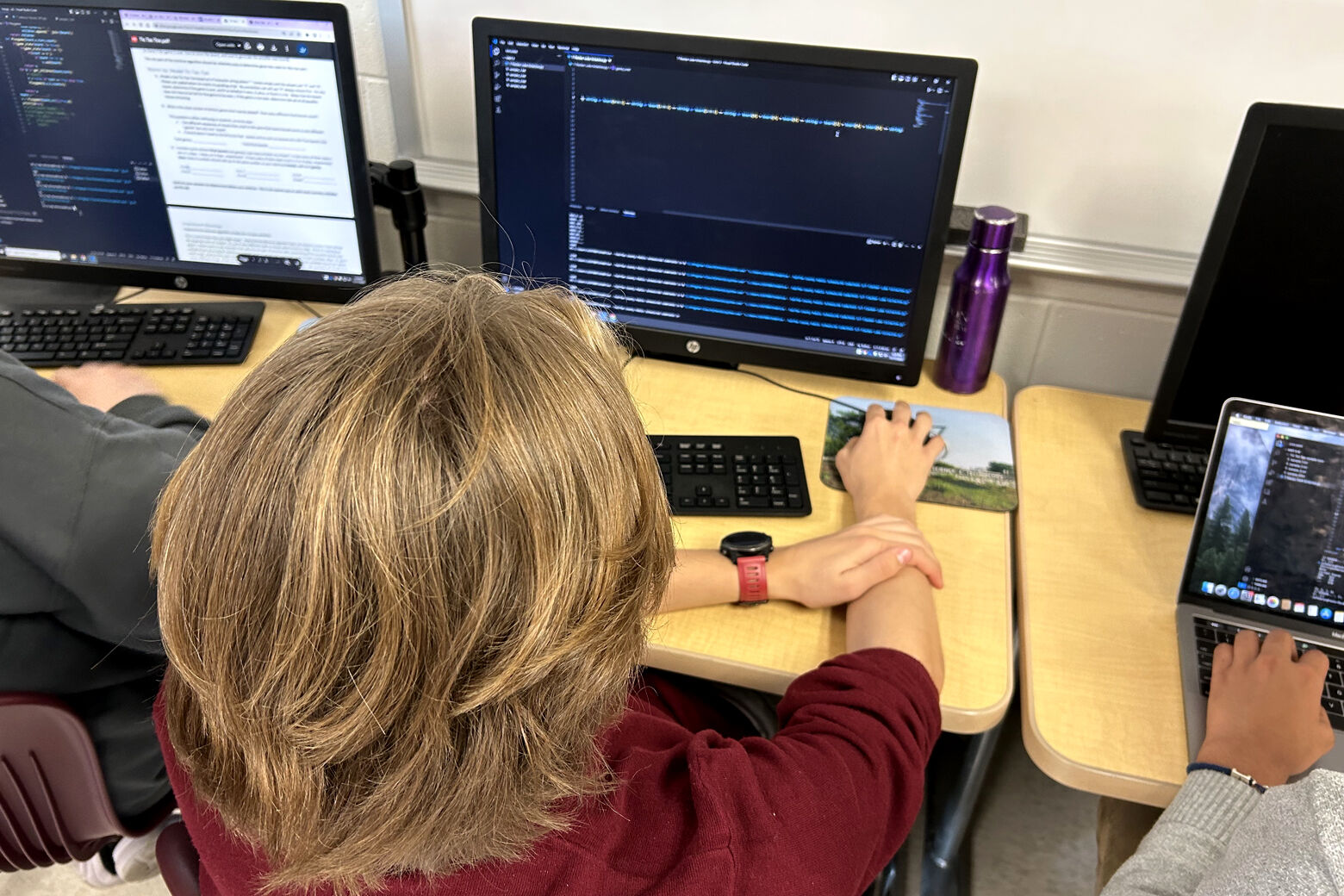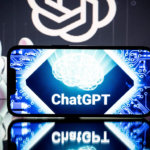Teacher Malcolm Eckel observed his students engaged in developing artificial intelligence for tic-tac-toe in Room 18 at Thomas Jefferson High School for Science and Technology in Fairfax County, Virginia.
Students interested in pursuing computer science or IT post-graduation receive an overview of artificial intelligence during the Friday course, as mentioned by Eckel. This course is attended by some juniors and seniors.
Unlike traditional research or assessments, the program involves open-ended assignments that students dedicate weeks to completing.
The tasks are designed to challenge students to focus on programming for extended periods of two to three weeks.
Eckel expressed the goal of enabling students to independently code and troubleshoot by the end of the academic year.
Despite evolving with technological advancements, the program has been a longstanding offering at the esteemed institution, according to Eckel.
Before students delved into coding on their devices during the Friday session, Eckel briefed them on the task at hand. Each assignment, he explained, revolves around a central issue linked to a real-world puzzle, problem, brainteaser, or scenario.
Presently, students are developing artificial intelligence for the board game Othello, aiming to create AI capable of outperforming most human players, as per Eckel.
The final project involves utilizing AI to efficiently solve 100 crossword puzzles.
Eckel highlighted the personalized nature of open-ended tasks, noting that the messages within them often cater to individual students.
Approximately 40% of TJ students opt for the Artificial Intelligence course, according to Eckel.
Anika Saraf, a student, praised the Artificial Intelligence program as one of the top offerings at the school, attributing this to the problem-solving skills it cultivates. These acquired skills, she noted, extend beyond academic realms to practical applications like home decor and decision-making in various contexts.
Saraf emphasized the necessity of developing methodologies to tackle significant challenges effectively.
Sophia Huang pointed out the applicability of AI in transportation scenarios, citing examples of optimizing routes in games and GPS navigation.
Towards the semester’s end, students will construct a neural network from scratch under Eckel’s guidance, enabling it to self-learn figure recognition.
Eckel expressed his desire for students to feel empowered to innovate and create new technologies.
Acknowledging concerns surrounding new innovations, Eckel encouraged students to explore AI applications through experimentation.
He reassured that fears about AI advancements surpassing human control are exaggerated, drawing parallels to historical technological advancements like the pocket calculator not rendering math education obsolete.
Junior Aarush Vinod highlighted AI’s positive impact in the medical field as evidence of its benefits outweighing potential drawbacks.
Eckel envisioned AI becoming more pervasive, akin to the widespread use of Google searches, emphasizing the iterative nature of current AI developments rather than radical innovation.
He humorously remarked, “I don’t think we’re at Skynet levels yet,” alluding to the fictional AI overlord from popular culture.






